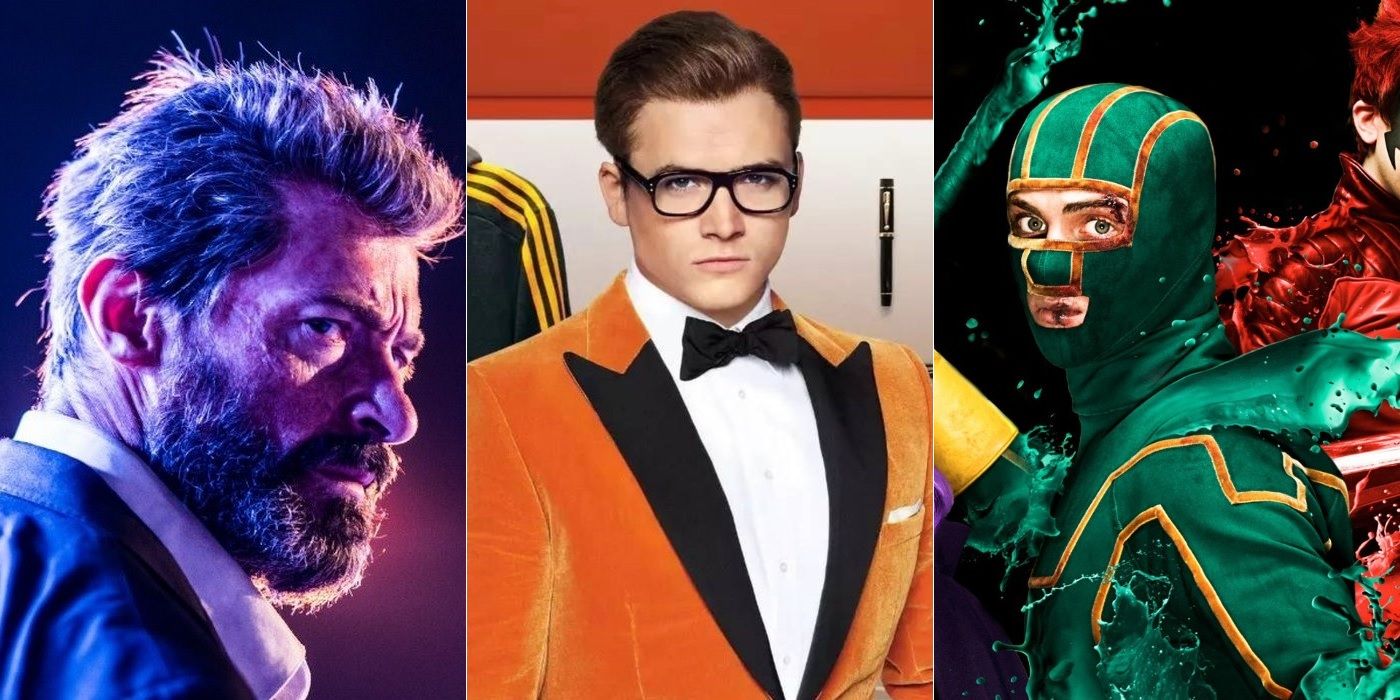
Plenty of Mark Millar comic book tales have made the transition to live-action, but how do they rank against each other? It's not unusual for comic writers to receive acclaim for stories on both the Marvel and DC sides of the divide. Much less common is when an author earns plaudits for their work among the big guns, as well as for their own original titles. Mark Millar sits as a member of this exclusive club, and testament to his influential storytelling is the wealth of movie and TV adaptations borne from his back catalog.
Mark Millar has a reputation for twisting the traditional superhero formula, whether by shining a light on the darker sides of Marvel and DC's favorites, or taking a brutally realistic glimpse at the life of a vigilante. Other titles deviate from the superhero genre entirely, reinventing James Bond, or edging into thriller territory. With so many famous releases to his name, it's little surprise that Mark Millar live-action adaptations have generally impressed, with fans and at the box office. Even the lower entries on this list (some of them at least) would chart far higher on any other author's ranking.
Between movies and TV, a total of 9 different comic books titles written by Mark Millar have been given the live-action treatment. Judging both on quality and how well the source material was adapted, here's how his adaptations rank, from worst to best.
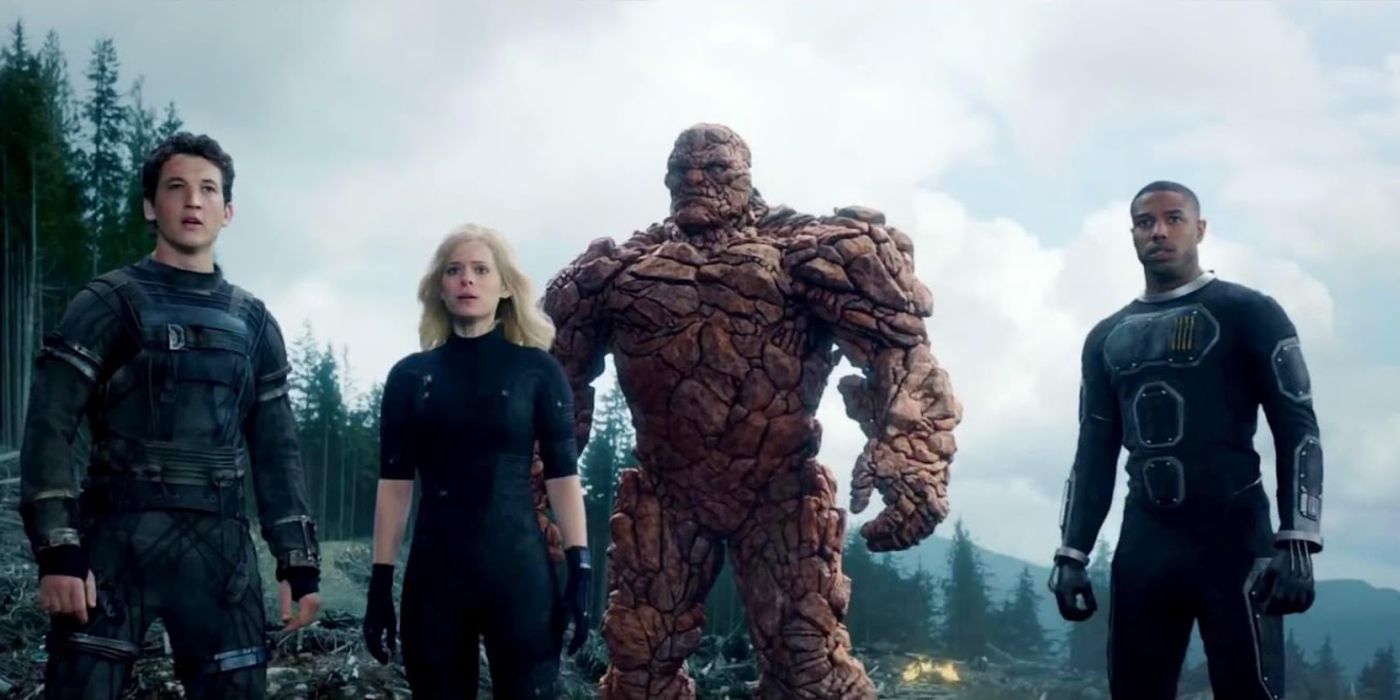
Fox released two Fantastic Four movies in 2005 and 2007, both of which failed spectacularly to do Marvel's first family justice. After missing the mark with the original cast, Josh Trank would helm a reboot a decade later, and many fans assumed the only way was up for the Fantastic Four on the big screen. Sadly, those sentiments proved wildly over-optimistic. Not a Mark Millar adaptation per se, Trank's Fantastic Four effort is inspired by his revised origin for the group as told in the 2000s Ultimate Fantastic Four run.
There's not much to say about Fantastic Four's failures that hasn't already been detailed extensively, with Trank himself even disowning the final edit. The director has previously explained how he and Fox held very different creative visions from the beginning, and the process was rife with disagreements and disharmony. After principle filming was completed, a dissatisfied Fox demanded extensive reshoots, and Stephen D. Rivkin was drafted in as the Fantastic Four "Whedon." Multiple sources (including Trank himself) claim that Fantastic Four had all the makings of great movie, but the director was angling for a darker tone while Fox were looking for something in the MCU's ballpark, meaning an end result that makes the 2005 film look like Citizen Kane.
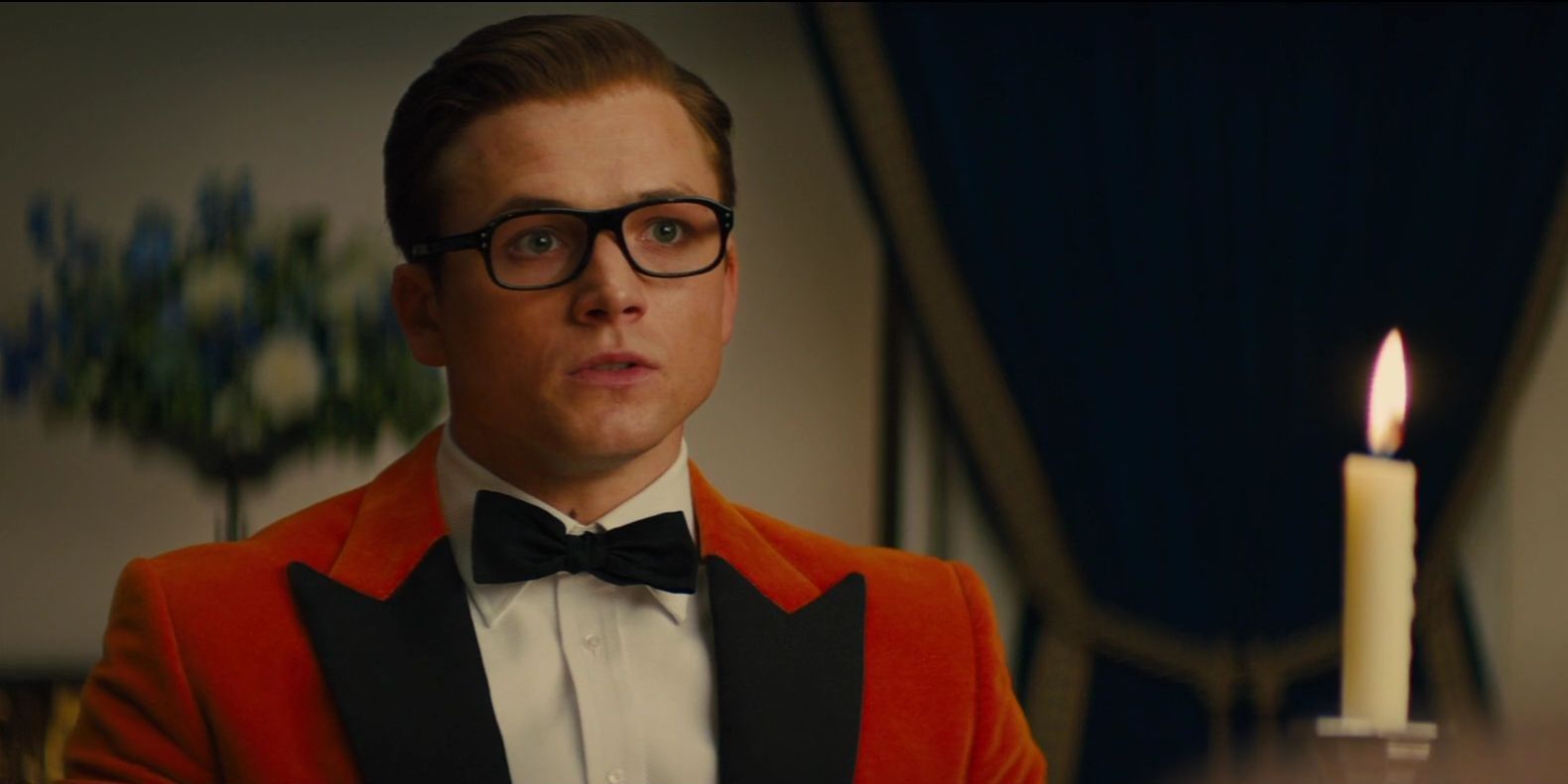
After the critical and commercial success of Kingsman: The Secret Service in 2014, a sequel was not only inevitable but eagerly anticipated. But where the first R-rated spy caper was based directly on Mark Millar and Dave Gibbons' The Secret Service graphic novel, Kingsman 2: The Golden Circle merely took the foundations of the comic universe and plumped for a larger than life "Hollywood" sequel.
Kingsman 2: The Golden Circle sacrifices large swathes of what made the original great in favor of spectacle and bombast. With electric whips, robotic dogs and miraculous life-saving bubbles, Kingsman 2 did for Eggsy what Die Another Die did for James Bond, edging over the thin line of farce and losing the grounded street-level contrast that once defined Taron Egerton's chav-turned-spy character. The plot is nonsensical, despite the good work of Julianne Moore as the villainous Poppy, and Colin Firth's amnesiac return feels hollow compared to the heartwarming bond he and Eggsy shared in The Secret Service. And if you thought the original's anal sex gag was in poor taste, the sequel has Eggsy finger a girl to plant a tracker inside her.
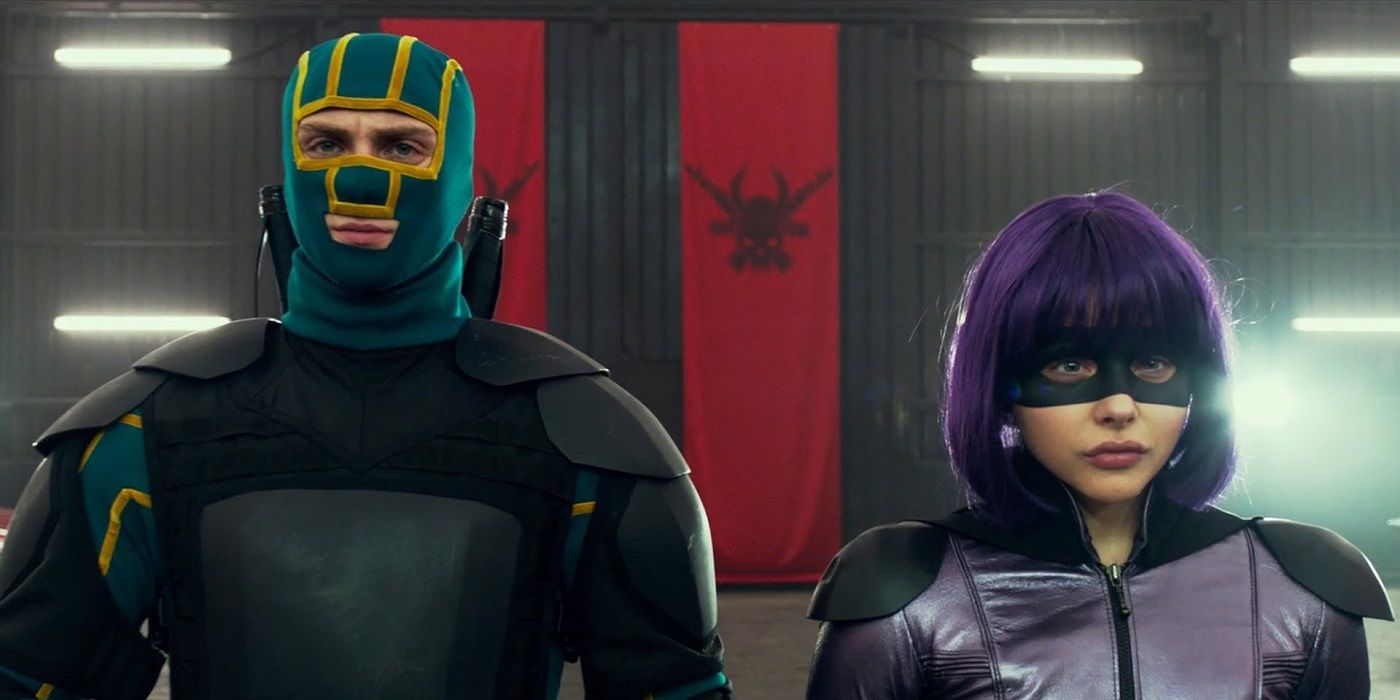
Following in the tradition of disappointing Mark Millar adaptation follow-ups, the second outing for Kick-Ass and Hit-Girl fares little better than Eggsy's lackluster second mission. Much like Kingsman: The Golden Circle, Kick-Ass 2 simply doesn't know what to do with protagonists whose origin story is done with. Jim Carrey is great (obviously), but if the first film was a hilarious and satirical take on the superhero genre, Kick-Ass 2 is a collection of superficial and under-cooked ideas. The script touches on the morality of masked vigilantes, family tragedy, life after hanging up the cape, high school hi-jinks, and much more besides.
Unlike Kingsman: The Golden Circle, however, Kick-Ass 2 does at least draw from the sequel graphic novels by Mark Millar and John Romita Jr. The material works better in a comic book medium, where each character's issues and tribulations are given the necessary space to play out, but in a sub-2-hour movie, very little of Kick-Ass 2 hits the mark. Infinitely less memorable than its standout predecessor.
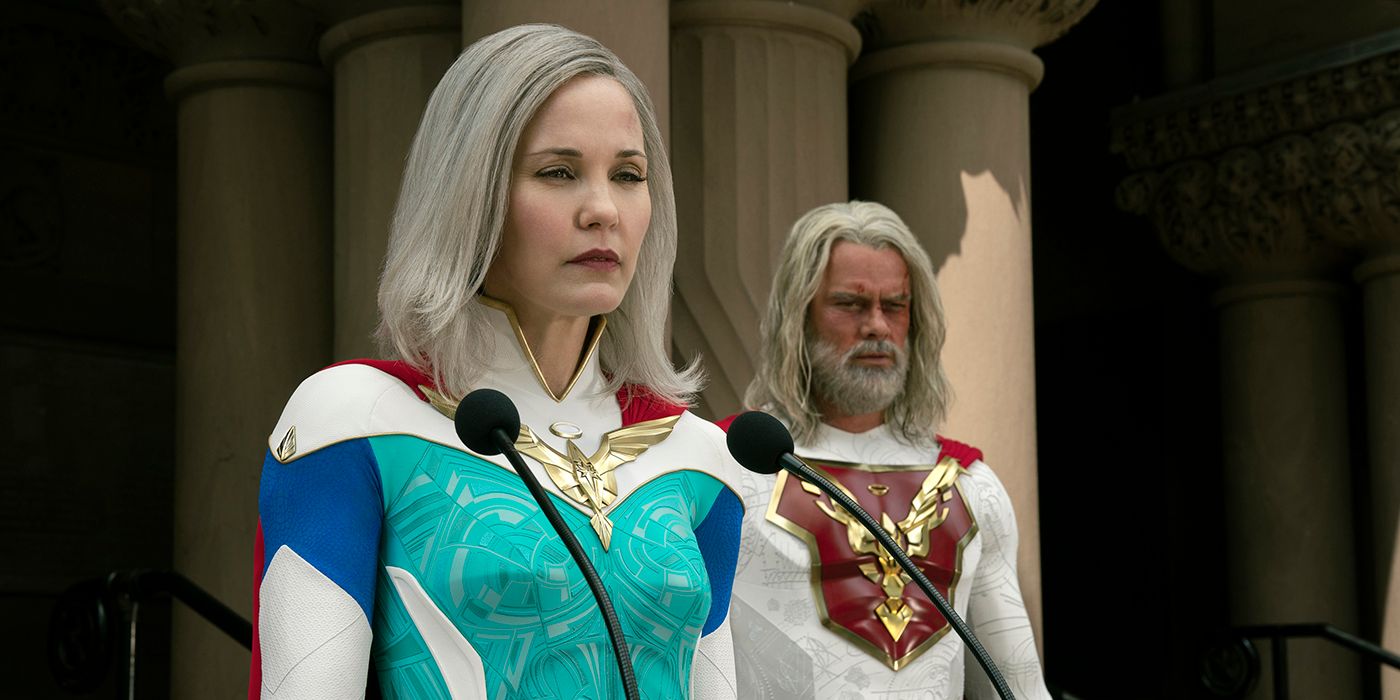
The most recent entry on our ranking, Jupiter's Legacy landed on Netflix as an offbeat comic book TV series centered around a legendary superhero family in which the younger generation struggle to match their parents' reputations. Mark Millar and Frank Quitely's graphic novel first released in 2013, and while the source material and its follow-ups were roundly praised, early reaction to the Netflix series has been decidedly more mixed, with criticism in particular reserved for the slow pacing and humorless tone. On the other hand, Jupiter's Legacy features strong characterization, and an effective dual-timeline dynamic between the 1930s and the modern day, exploring two important eras in Sheldon Sampson's development.
The first product of Mark Millar's business relationship with Netflix, Jupiter's Legacy makes a strong enough start to suggest good things to come from the pairing. Perhaps The Utopian's live-action debut suffers in a saturated superhero market, with The Boys and Netflix's own The Umbrella Academy both offering stronger takes on similar themes, not to mention the MCU's migration to the small screen on Disney+.

Before becoming the Stephen King of comic book adaptations, Mark Millar's extensive cinematic catalog began with 2008's Wanted. Assembling a stellar cast headed-up by James McAvoy, Angelina Jolie and Morgan Freeman, Wanted builds from a uniquely intriguing premise to deliver stellar, innovative action. In this respect, Wanted's violent thrills and bloody spills are an unmitigated success, as Jolie and McAvoy bend their bullets stylishly across the big screen. In terms of adapting the comic series of the same name, however, Wanted is found wanting.
First released in 2003 from Mark Millar and J.G. Jones, the original Wanted offers only its bare bones to the Hollywood adaptation, which follows its predecessor in the looses possible terms, content to exist as a straightforward action movie by omitting the wittier, morally dubious aspects of Millar's writing. Wanted's most obvious movie change is the switch from supervillains to assassins, which reframes Millar's story entirely. With that said, those unfamiliar with the source material will struggle not to have at least a little fun with Wanted.
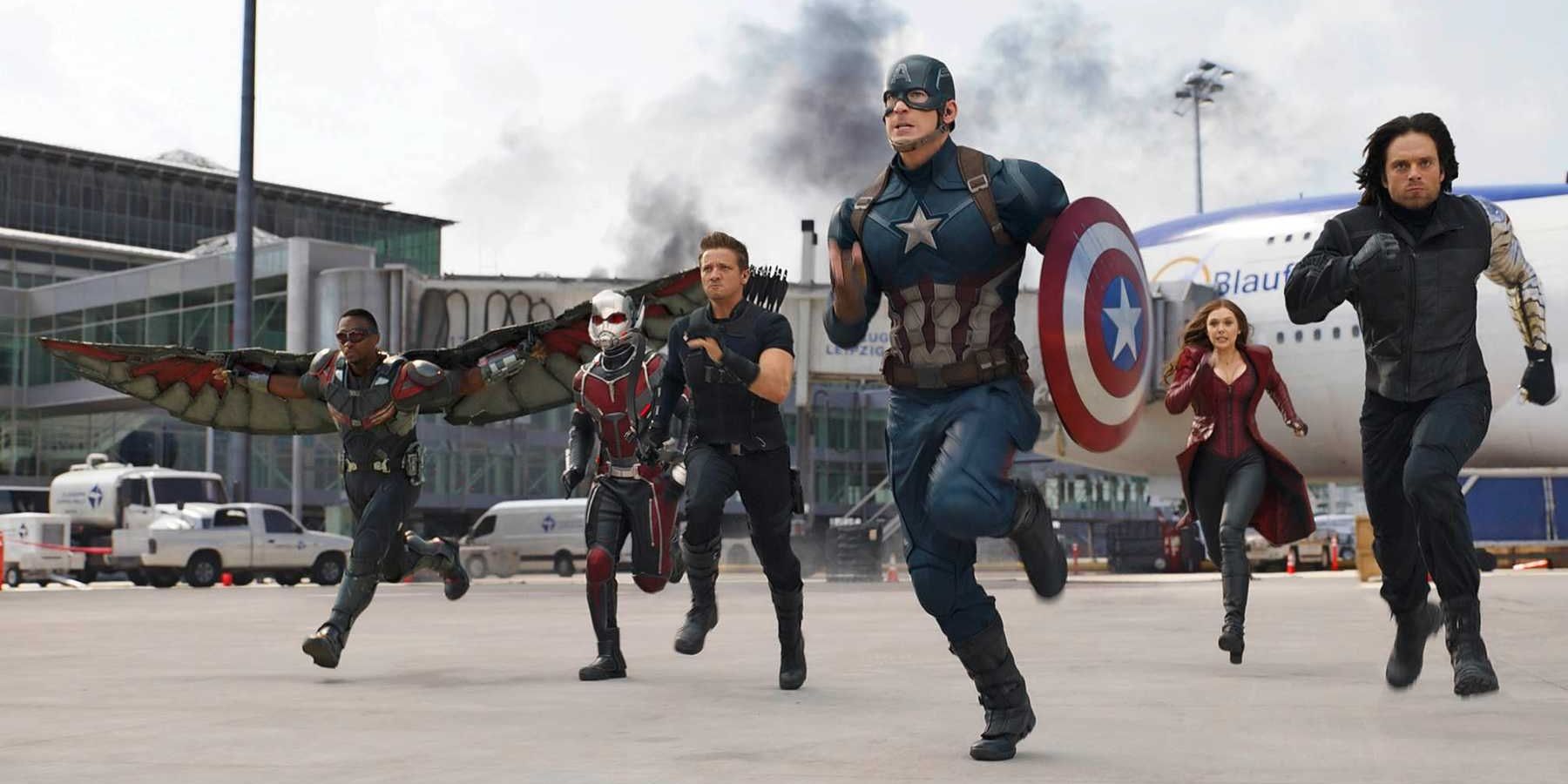
Kicking off a quartet of top-tier Mark Millar adaptations is the MCU's Captain America: Civil War, or Avengers 2.5, to use the original title. Miller has lent his subversive touch to many a Marvel property, but none match the renown or influence of 2006's Civil War, which split the entire superhero roster in two with an argument over vigilante rights. Raising issues of privacy, surveillance, morality and corruption, Civil War became an all-encompassing event spread across various titles and would soon be considered a modern classic.
In the aftermath of Avengers: Age of Ultron, the MCU launched into its own Civil War narrative, replacing the Superhero Registration Act with the Sokovia Accords. Building upon the existing success of the MCU franchise, Captain America: Civil War does a respectable job of raising the same topics in a mainstream-friendly manner, and successfully delivers a hard-hitting clash between Team Rogers and Team Stark. As an adaptation, Captain America: Civil War arguably suffers because of the strict MCU format. There are far fewer heroes involved in the dispute, and the core themes of the comic are secondary to the long-running storylines and relationships already in motion, but considered on its own merits, Captain America: Civil War is one of the strongest entries in a hit-filled MCU.
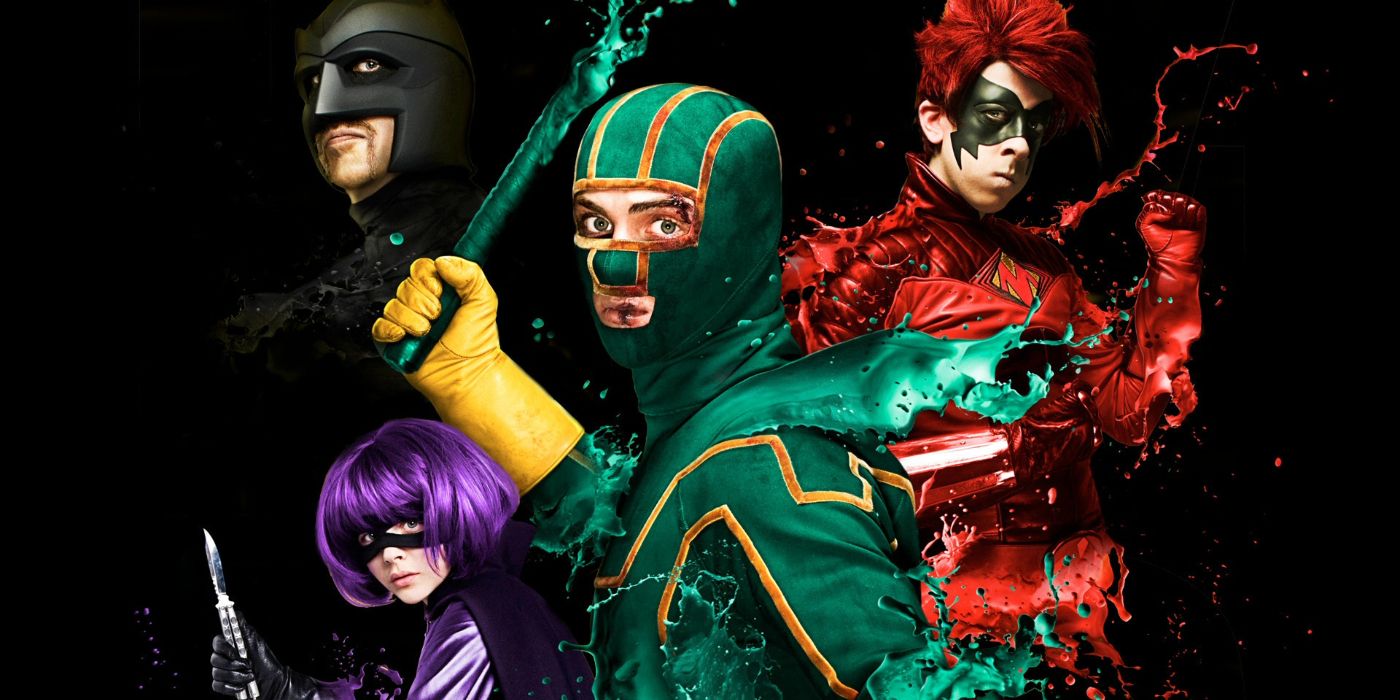
The world was crying out for Kick-Ass in 2010. Based on the first of Millar and Romita's graphic novels, Kick-Ass expertly treads the line between rip-roaring satire and unflinching realism, exemplified by a Nicholas Cage death scene that leaves everyone crying, but no one quite sure whether they're tears of sadness or laughter. Speaking of Cage, Kick-Ass is perfectly cast. Aaron Johnson is entirely believable as a wannabe vigilante out of his depth, and Hit-Girl makes a star out of Chloë Grace Moretz. Cage, of course, is the pièce de résistance, with director, Matthew Vaughn, fully aware of the meta, scenery-gnawing comedy the actor brings.
Kick-Ass is essentially a coming-of-age story wrapped in a superhero's cape, never allowing the brutal, real-world action to overshadow the humanity of isolated, frustrated teens and a kid whose childhood was stolen away. Many have attempted the "superheroes in real life" concept, but few executed those ideas as successfully or accessibly as Kick-Ass, which ably brings to life the tone and imagery of Millar's source material.

Similar to Kick-Ass, Kingsman is a Mark Millar movie franchise of two very different halves. Released in 2014, Kingsman: The Secret Service broadly follows the comic book series of the same name and actually makes improvements, such as replacing Jack London with Colin Firth's Harry Hart. Taking a sideways look at the spy genre, Kingsman blends Jason Bourne with Austin Powers and, once again, relies on a faultless collection of actors. A thoroughly deserved honorable mention should go to Mark Strong, whose deeply underrated presence underpins both Kingsman and Kickass.
Where The Golden Circle turns Kingsman's ridiculousness to 11 and shows little regard for local noise regulations, The Secret Service delivers laughs and emotional gut-punches in equal measure. Smirk at Samuel L. Jackson's gloriously overblown villain, wince at Harry's right-wing church massacre, and then get emotionally invested in the fate of a pug. Like much of Millar's work, there's a certain degree of shock value at play, but not so much that detracts from Kingsman's substance.
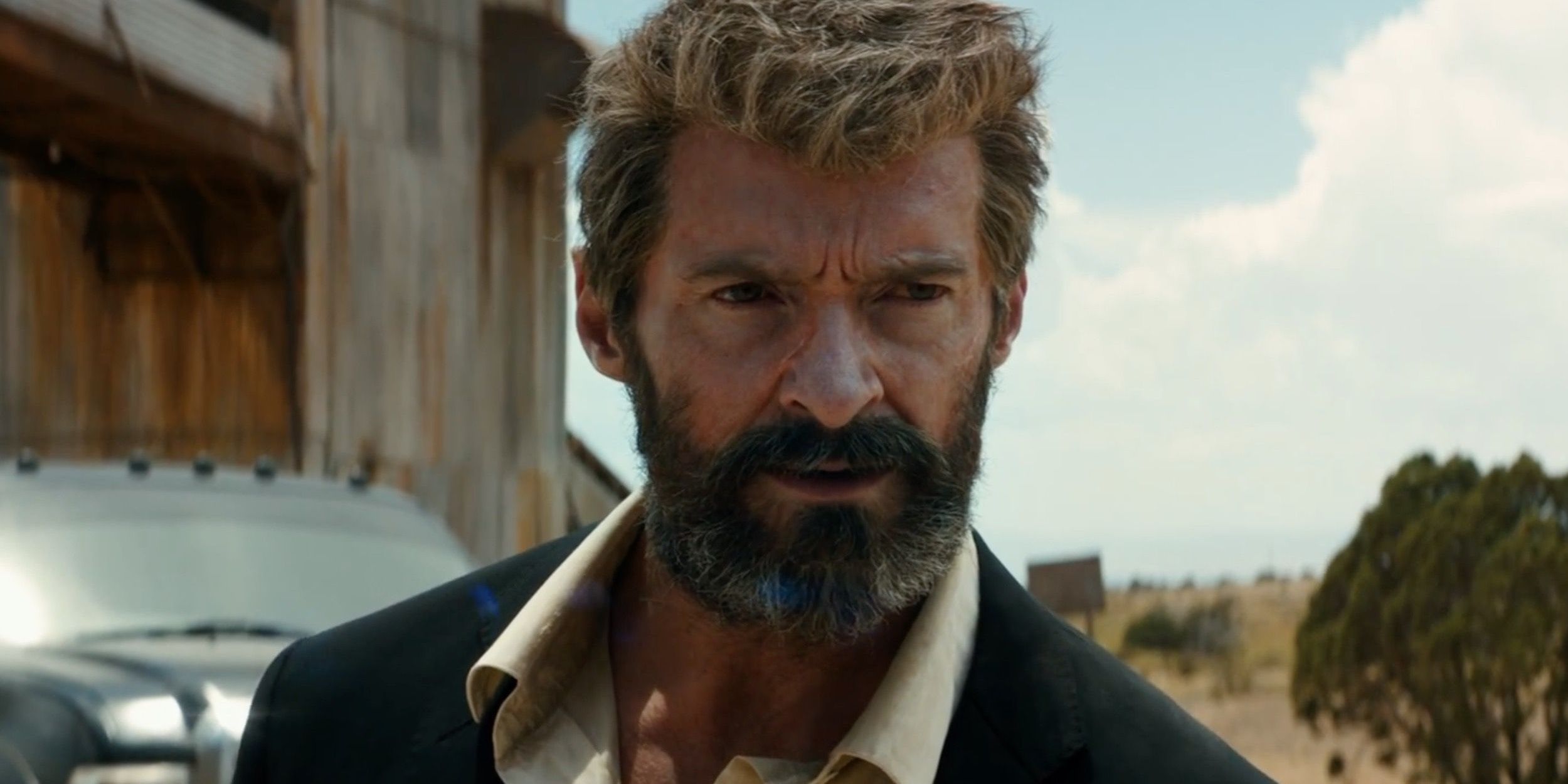
By 2017, Hugh Jackman's Wolverine was already a cinematic icon, but had enjoyed little luck with solo efforts. 2009's X-Men Origins: Wolverine was infamously bad, and while 2013's The Wolverine showed vast improvements, Jackman clearly had much more to offer as the adamantium mutant. For his X-Men swansong, Wolverine could find no better inspiration than Mark Millar's "Old Man Logan" and, riding high on Deadpool success, Fox was willing to let James Mangold and Hugh Jackman tell the story in all its gritty western glory.
Nominated at the Oscars for Best Screenplay, Logan is a relatively straightforward pick for Mark Millar's top adaptation. Alongside Patrick Stewart playing Professor X for one final time and a revelatory Dafne Keen as X-23, Hugh Jackman goes out on the highest possible note - a visceral, emotional epic and one of the finest examples you'll find of blending personal drama with superhero action. Logan certainly doesn't chronicle Millar's source material verbatim, but couldn't be closer in terms of spirit and intention, and is rightly considered one of the best comic book adaptations of any author.
from ScreenRant - Feed https://ift.tt/3o4UUTO


0 Comments